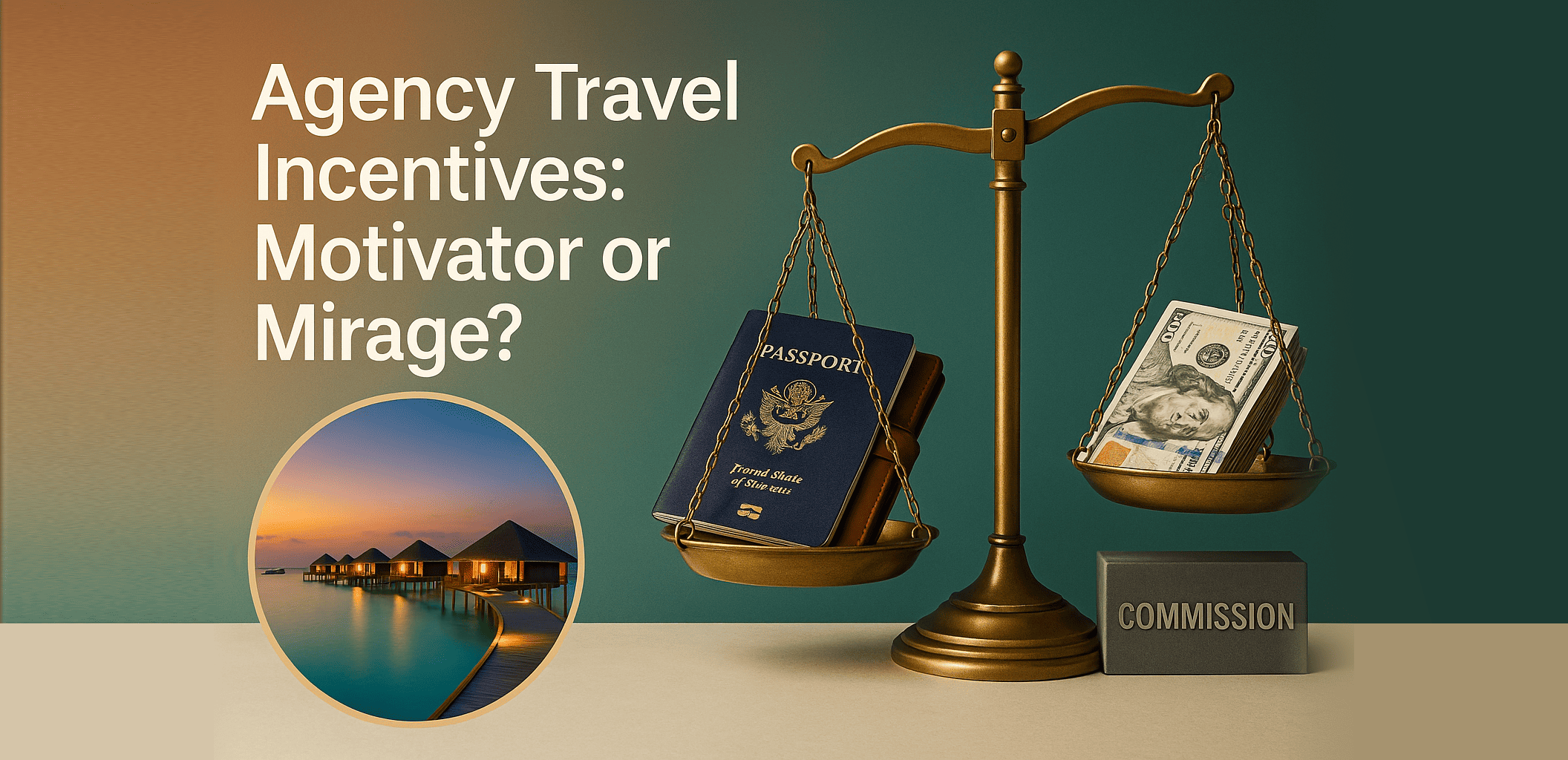Agency Travel Incentives: Motivator or Mirage?

Everywhere you look in the real estate industry, agencies are flaunting travel incentives. Europe, the USA, Japan—dream destinations packaged as rewards for top achievers. The rule is simple: sell X number of units, and you’re on the plane.
When the winners are announced, photos flood social media. Leaders proudly market these trips to the whole world: “Look how well we treat our agents!” It creates an illusion of generosity, a powerful recruitment tool that attracts fresh negotiators who want to be part of the glamour. More manpower means more sales.
But beneath the shiny Instagram posts lies a much harsher reality.
The Hidden Cost of Incentives
Agents aren’t naïve. They know the agency isn’t funding these trips out of pure kindness. The budget comes from somewhere—specifically, from their commission splits.
While one agency spends on travel rewards, another is quietly offering higher cash payouts for the exact same projects. Many agents would rather take the extra commission today than gamble for a vacation tomorrow.
And the resentment shows. Some top producers return from their “reward” trips only to resign. Worse, they often take whole batches of agents with them—either to start their own brand or to join a competitor offering better payouts. What was meant to build loyalty ends up accelerating turnover.
Why Bosses Still Do It
To be fair, there’s logic behind travel incentives. Proponents argue these trips create unparalleled team bonding and memories that cash can’t buy. They serve as a visible trophy for success—luxury that feels unattainable on one’s own, but suddenly within reach through performance.
There’s truth here. The psychological appeal of a “free” trip is potent, and agencies know the optics of plastering vacation photos across social media can recruit more negotiators than any paid ad campaign. For bosses, incentives are as much a marketing tool as they are a reward system.
The Illusion of Generosity
But perception cuts both ways. On the surface, travel incentives make an agency look generous. In practice, they often highlight how little agents are actually receiving compared to peers in other firms.
Instead of thinking, “My agency values me,” many achievers return from trips thinking, “If I had a higher split instead of this vacation, I’d already be earning much more.”
The very program designed to inspire loyalty ends up breeding dissatisfaction.
A Smarter Alternative: Hybrid Rewards
This isn’t to say all travel is bad. Used wisely, it can be powerful. The most effective strategy may be a hybrid:
- Prestige Trips for the Elite Few – Reserve travel rewards for the absolute top 1% as a symbol of status and recognition. Let it remain rare, aspirational, and prestigious.
- Competitive, Transparent Splits for All – Ensure every agent feels fairly compensated for their work. Cash should always be the foundation.
- Flexibility Over Force – Consider giving agents the option: a higher payout or a place on the incentive trip. Choice itself is a form of respect.
This balance preserves the culture-building appeal of travel while eliminating the resentment caused by hidden trade-offs.
The Bottom Line
Agency travel incentives aren’t inherently bad. They can inspire competition, build culture, and generate free publicity. But when they replace fair payouts, they risk backfiring—fueling turnover instead of loyalty.
Bosses must ask themselves: Do I want to invest in illusions, or in real retention?
Because the agents who truly drive sales aren’t looking for selfies in Paris. They’re looking for respect, fairness, and the freedom that comes with higher commissions.
👉 The next time you budget for incentives, think carefully. Maybe the best investment isn’t in a plane ticket—it’s in the payout structure that keeps your best people from leaving after they land.











































































































